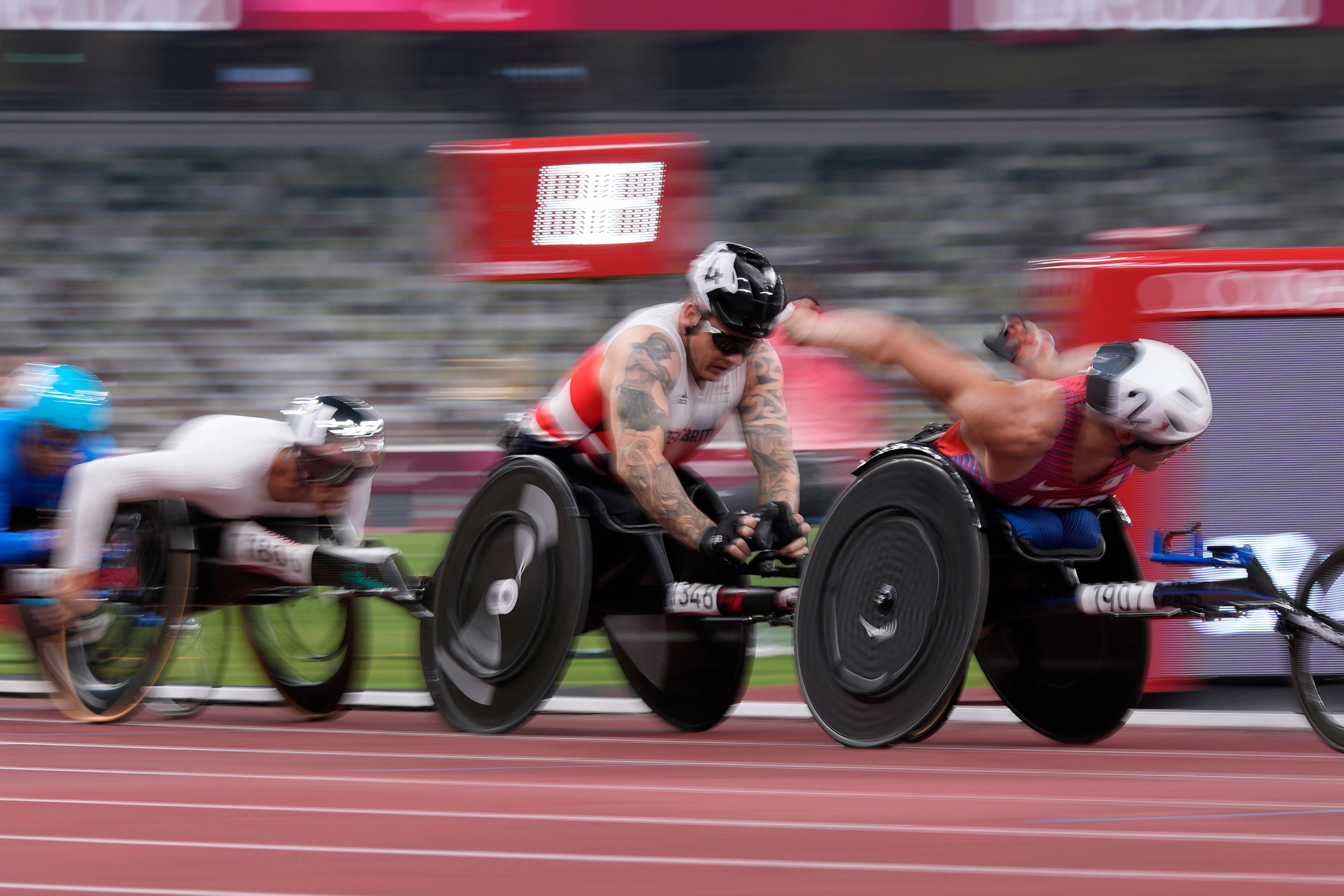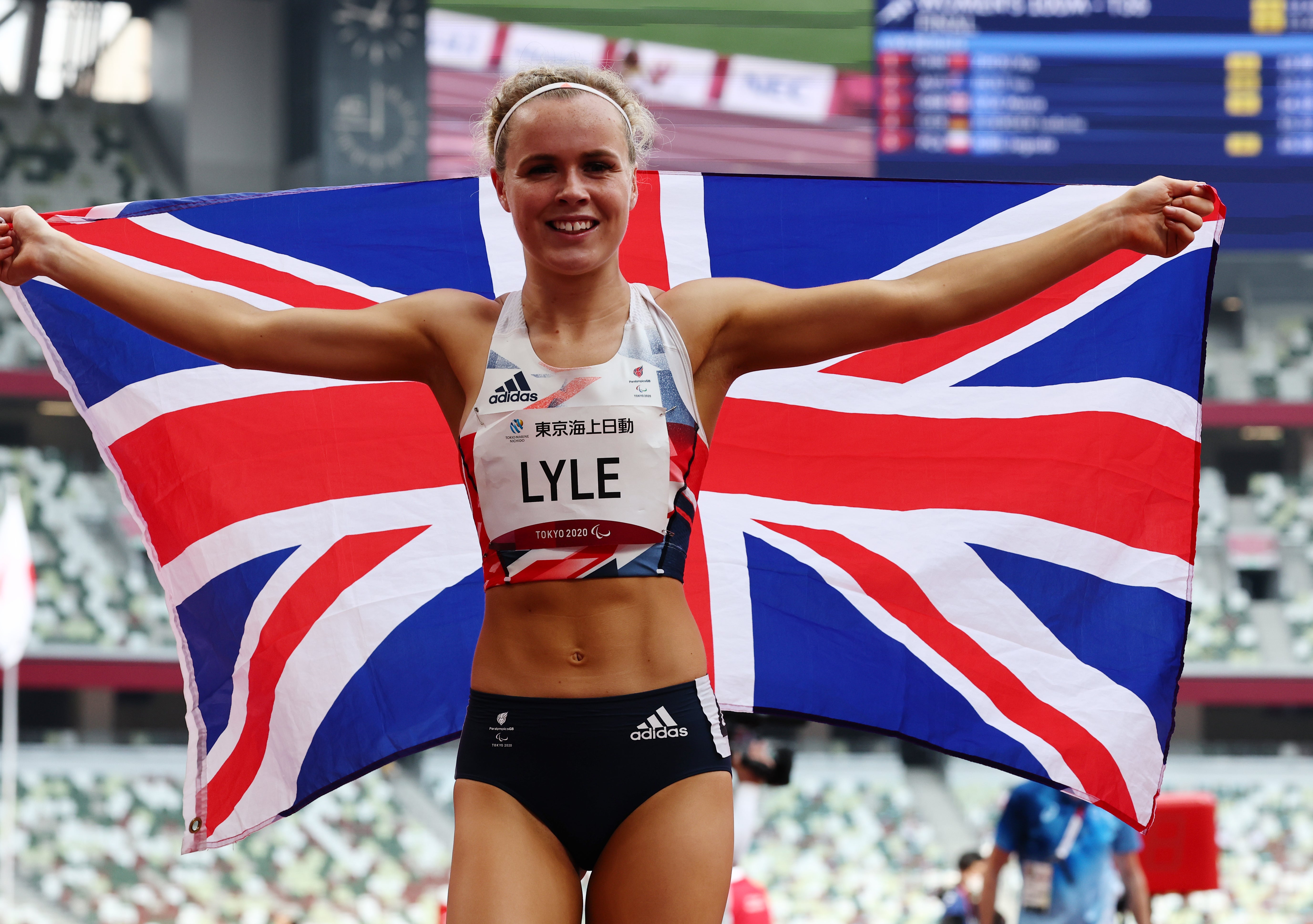David Weir: No fairytale return for Great Britain racer in Paralympic 5,000m
The six-time Paralympic champion finished eighth in his heat, nearly a minute behind Swiss winner Marcel Hug

Even when winning four Paralympic golds at London 2012 David Weir didn’t really look like he was enjoying himself.
The pressure of national expectation has always weighed heavily on an athlete who has long admitted struggles with his mental health. Simmering and justified resentments about a range of issues – from recognition to endorsements to prize money – were never far from the surface.
However, Weir has appeared a more relaxed athlete in recent days, a far cry from his outburst five years ago when he vowed never to wear a British vest again.
The six-time Paralympic champion quit to focus on road racing after the Rio Games but made a comeback when the pandemic left him searching for competition.
Nine years ago he won the 5,000m title, roared on by 80,000 home fans, but this was to be no fairytale return, the wheelchair racer finishing eighth in his heat, nearly a minute behind Swiss winner Marcel Hug.
He had no words to explain the performance though it appeared, when it was unlikely he’d qualify, he saved his strength for next weekend’s marathon – his primary focus here in Japan.
Speaking on the eve of the Games, Weir was smiling and vowing to enjoy the moment – easier said than done for a feared competitor not used to being last in a race.
“I just feel in a much better place mentally, I don’t feel like there is any pressure, no big weight is hanging over me,” he said.
“I’ve come here with zero expectations. Before London and Rio people were hanging four gold medals around my neck, that’s a lot to take and I just couldn’t cope anymore.
“I’ve tried to forget about Rio but I understand why people keep bringing it up, I just didn’t want that to be the last thing I did at the Paralympics. It was a horrible experience. I was just doubting myself and I hated that feeling. Every race felt the same. I just didn’t want to be around the sport any more. I’d had enough of everything it was about.
“I’m just enjoying this experience now and trying to appreciate it more.”
For many years Hug was in Weir’s slipstream. But two golds in Rio and three at the last World Championships in London has established him as the world’s number one wheelchair racer.
Known as the “silver bullet” for his trademark helmet, he has worked with a Swiss engineering to design a special chair he believes will give him a major advantage here in Japan.
“It’s a once-in-a-lifetime chance for an athlete to be involved in a project like this,” he said. “We worked together very closely. They designed a chair, I gave a lot of input, and had to test and give feedback. We did testing in a wind tunnel. It was very intensive.”

Five years ago the Scottish sprinter Maria Lyle struck T35 100m bronze at the Paralympics in Rio, a feat she repeated in Tokyo in a season’s best time.
Same result but very different emotions for the 21-year-old, who admitted a breakdown following the Commonwealth Games on the Gold Coast had her contemplating ending her athletics career.
Instead, she worked with Jamie Bowie, her coach at East Lothian, and a specialist sports counsellor to overcame big-race anxiety, brought on she claims by a fixation on times and performances.
“I was terrified of running, terrified of looking at my times and constantly comparing myself to others – now I’m just enjoying my sport again like I did when I started,” she said.
China’s Zhou Xia took a gold with a world record 13.00 seconds while Australia’s Isis Holt claimed silver. European and world champion Lyle’s time was 14.18s – and Lyle had no complaints.
“This has been five years of really hard work,” she added. “The last 18 months have been so hard trying to understand if the Paralympics were even going to happen.
“I tried to take each day as it came and Covid made me realise I just need to enjoy training and competing.”
“That’s feels so good, I’m so happy with a bronze medal. I didn’t know what to expect but I knew I was in good shape, a season’s best and a medal is more than I can ask for.”
Sainsbury’s is a proud supporter of ParalympicsGB and a champion of inclusive sport for all. Sainsbury’s commitment to helping customers to eat better has been at the heart of what we do since 1869. For more information on Sainsbury’s visit sainsburys.co.uk and paralympics.org.uk
Join our commenting forum
Join thought-provoking conversations, follow other Independent readers and see their replies
Comments
Bookmark popover
Removed from bookmarks